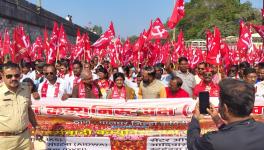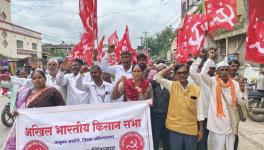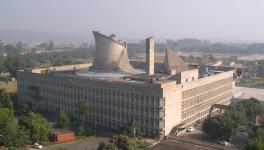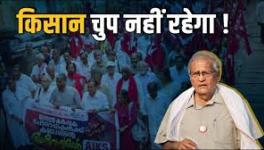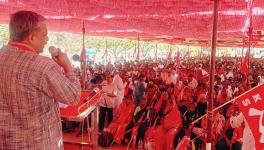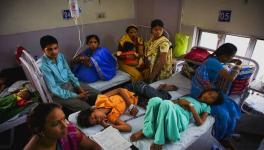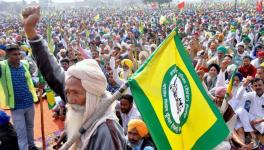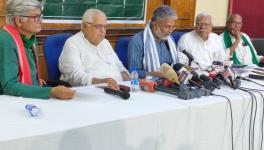Farmers Movement ‘Forged Unity in Diversity’
Representational use only.
The Jan Swasthya Abhiyan (JSA)-Delhi and the Delhi Science Forum (DSF) organised an online panel discussion on the ongoing farmers movement on the third death anniversary of
Dr. Amit Sengupta, a founding member of the JSA and the People’s Health Movement, on Sunday, November 28.
During the discussion, ‘Success of Farmers Movement: What Health Movement can Learn’, the speakers, Dr. Sanjay Madhav, All India Kisan Sabha leader from Rajasthan, and Dr. Dinesh Abrol from DSF, spoke about the success of the farmers agitation and the constant attacks by the Centre on all movements and voices of dissent
Before the discussion, a short video about Sengupta highlighting his fight for universal healthcare against its corporate monopolisation was screened.
Madhav mentioned the repeated attempts by the Union government and its supporters to dismantle the movement, spread rumours about its leaders and term all the farmers as Khalistanis or anti-nationals. The movement soldiered on because of the unprecedented amount of unity displayed by everyone associated with it, he said.
“The government puts all its efforts into derailing any movement by people who dare to raise their voices against it. The government also controls the mainstream media and uses it to demonise everyone that it does not like. The media does nothing apart from amplifying the things that the government says,” Madhav said. “The government used the media to spread rumours and lies about the COVID-19 pandemic and the farmers movement. It succeeded, to a certain degree, in convincing the people that it should not be held responsible [for the crises].”
Abrol, who has been a part of JSA since its inception, said that one of the greatest achievements of the movement was in uniting farmers, agricultural workers and workers from across the country. “It is important to remember that these farmers from across the country come from different backgrounds and grow different crops. Some of them already had access to MSP and food grain markets before the movement started. Despite these differences and different backgrounds, they stayed together,” he said.
Abrol also said that the right to health movement can learn a lot from the farmers movement. “It is very important for us to recognise when and how our constitutional rights are being violated and who is the perpetrator. We need to learn how to unite and raise our voice against the government and corporate giants,” he said while highlighting the importance of bringing all doctors, nurses, and healthcare workers, including ASHAs and Anganwadi, into the movement.
A book commemorating Sengupta’s journey and work was published recently by Leftword. The book, Political Journeys in Health: Essays by and for Amit Sengupta, captures some of his most prominent works on access to medicines and health system and the politics of bio-similar/large molecules. It also contains the reflections of some of his close comrades, compatriots and friends, like David Sanders, David Legge, NB Sarojini, Satyajit Rath and others.
Get the latest reports & analysis with people's perspective on Protests, movements & deep analytical videos, discussions of the current affairs in your Telegram app. Subscribe to NewsClick's Telegram channel & get Real-Time updates on stories, as they get published on our website.









